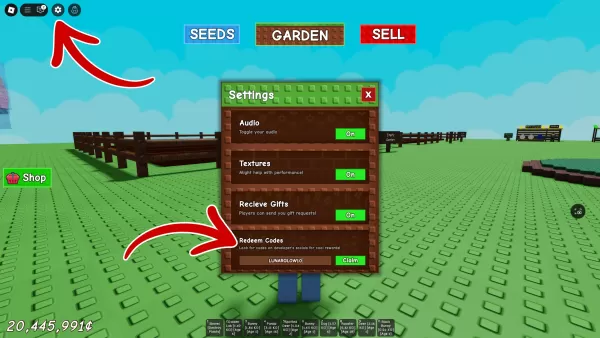Top Affordable VR Headsets Reviewed
The world of virtual reality (VR) can seem out of reach with high-end options like the Apple Vision Pro priced at a staggering $3,500. However, there are affordable alternatives that allow you to dive into immersive virtual worlds without breaking the bank.
TL;DR – These Are the Best Budget VR Headsets:
 Our Top Pick### Meta Quest 3S
Our Top Pick### Meta Quest 3S
38See it at AmazonSee it at Best Buy ### PlayStation VR2
### PlayStation VR2
13See it at AmazonSee it at PlayStationSee it at Target ### Nintendo Labo Toy-Con 04
### Nintendo Labo Toy-Con 04
8See it at Amazon ### Atlasonix VR Headset
### Atlasonix VR Headset
13See it at Amazon ### Google Cardboard POP!
### Google Cardboard POP!
6See it at AmazonThe advent of the Oculus Quest, now under Meta's umbrella, revolutionized VR by eliminating the need for a gaming PC. Its affordability opened up VR to a broader audience. Even today, standalone VR options remain limited, so exploring VR often requires integration with another platform.
Whether you're seeking a comprehensive VR experience with advanced tracking, six degrees of freedom (6DoF), and high resolutions offered by devices like the Meta Quest 3S or PlayStation VR2, or you're just looking to experiment with VR, we have curated a selection of budget-friendly VR headsets. Some of these require a smartphone to operate, serving as an excellent entry point before you decide to invest in a more expensive model.
AnswerSee Results### Meta Quest 3S – Photos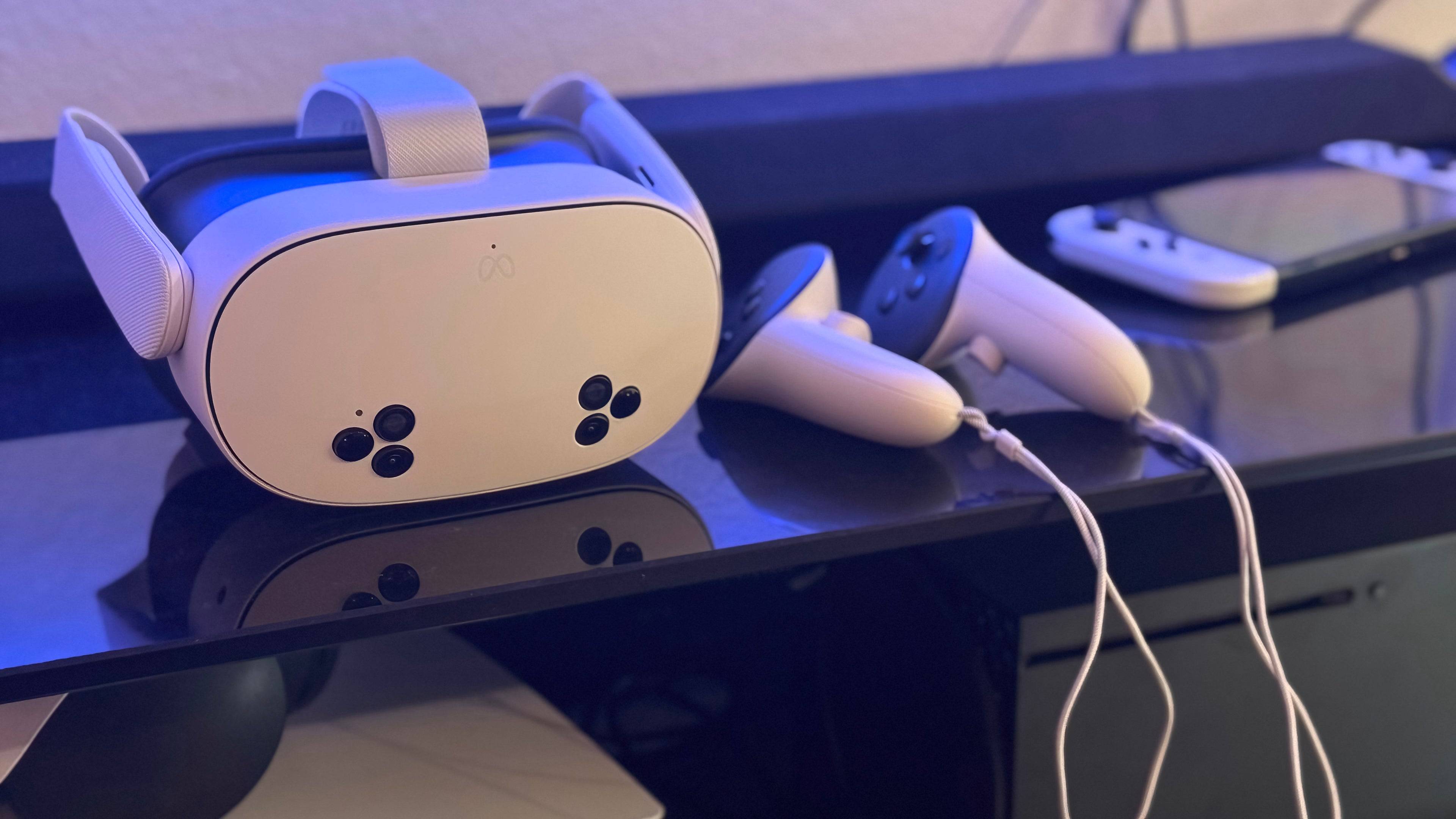
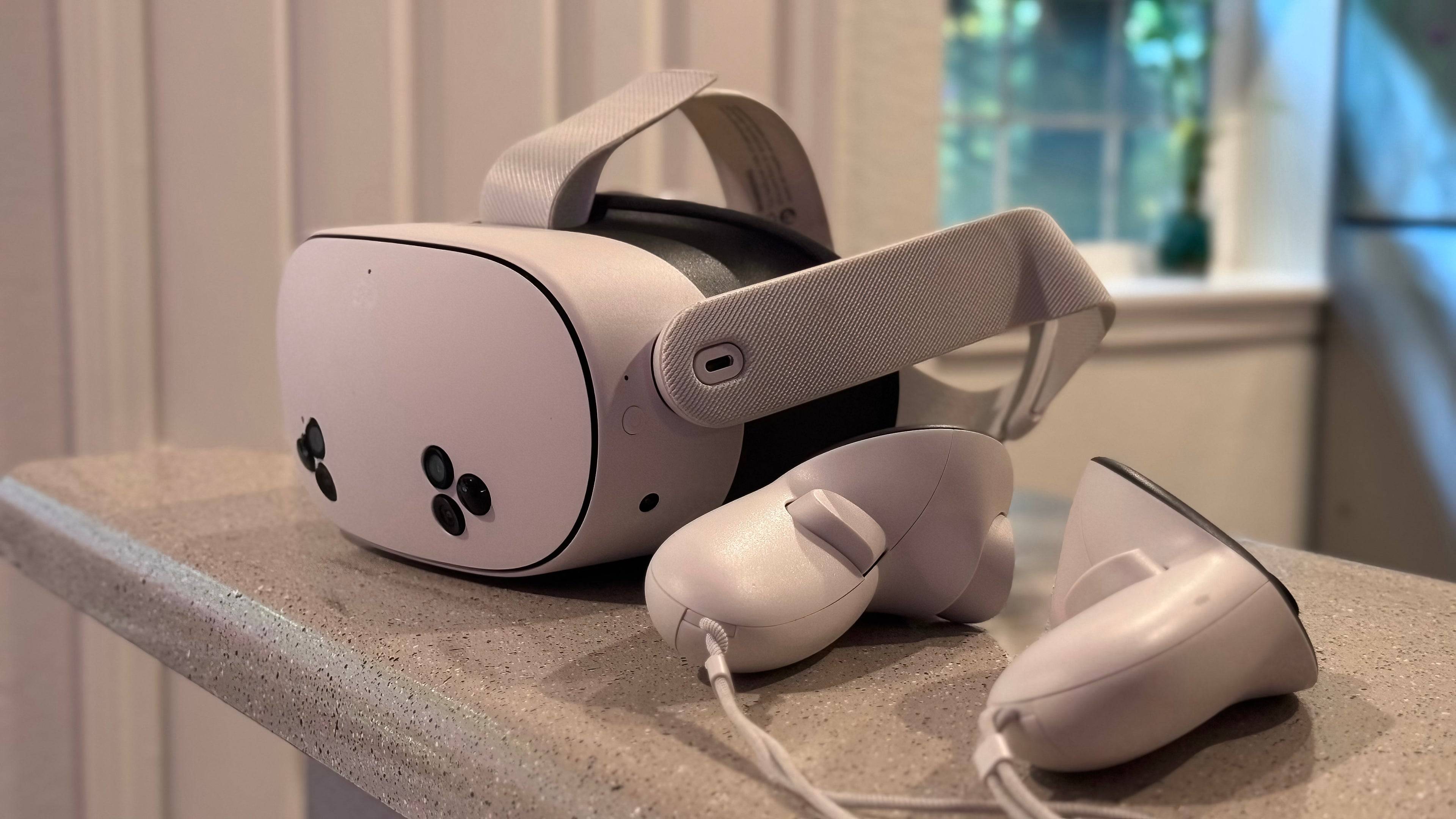 10 Images
10 Images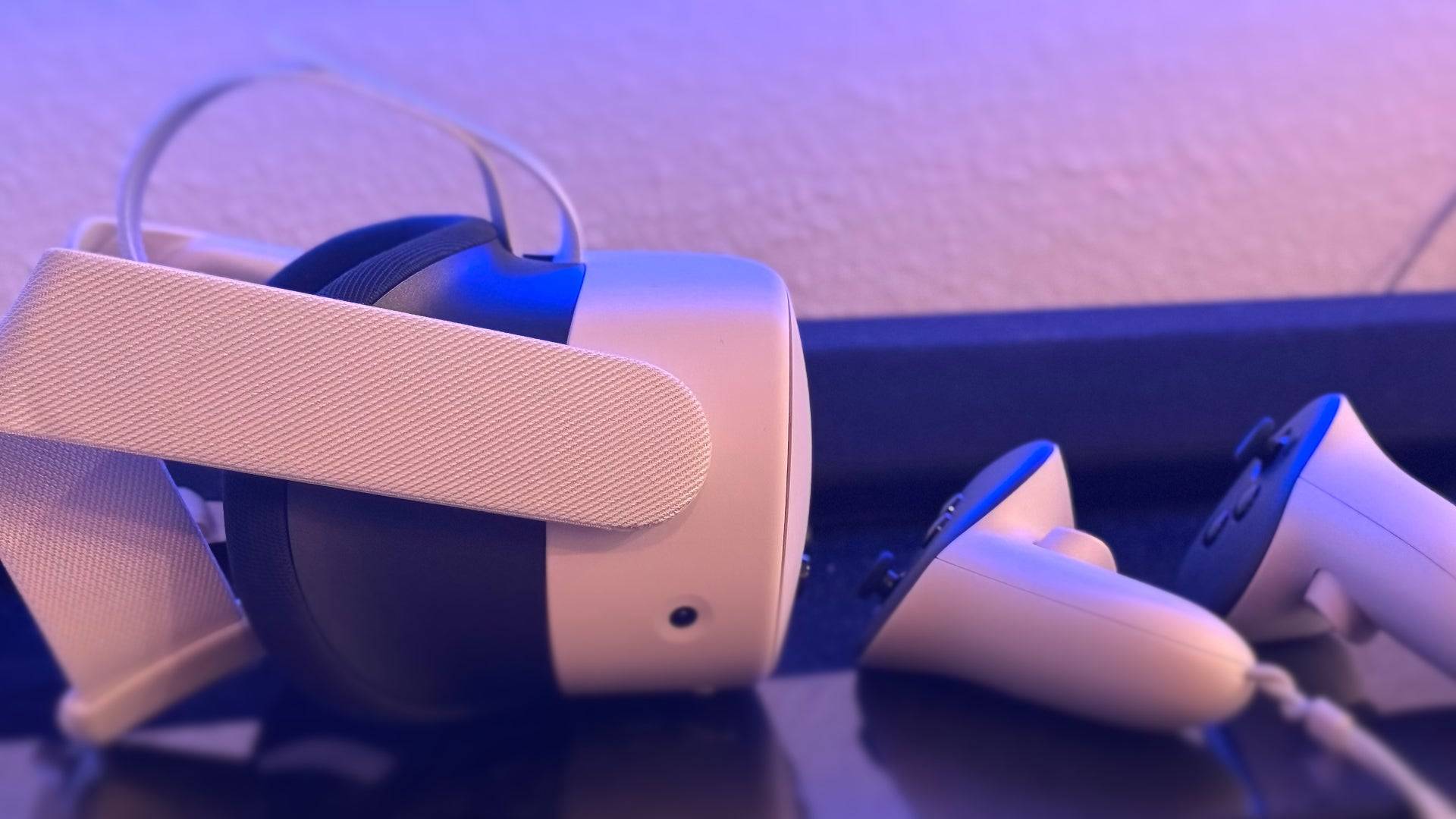

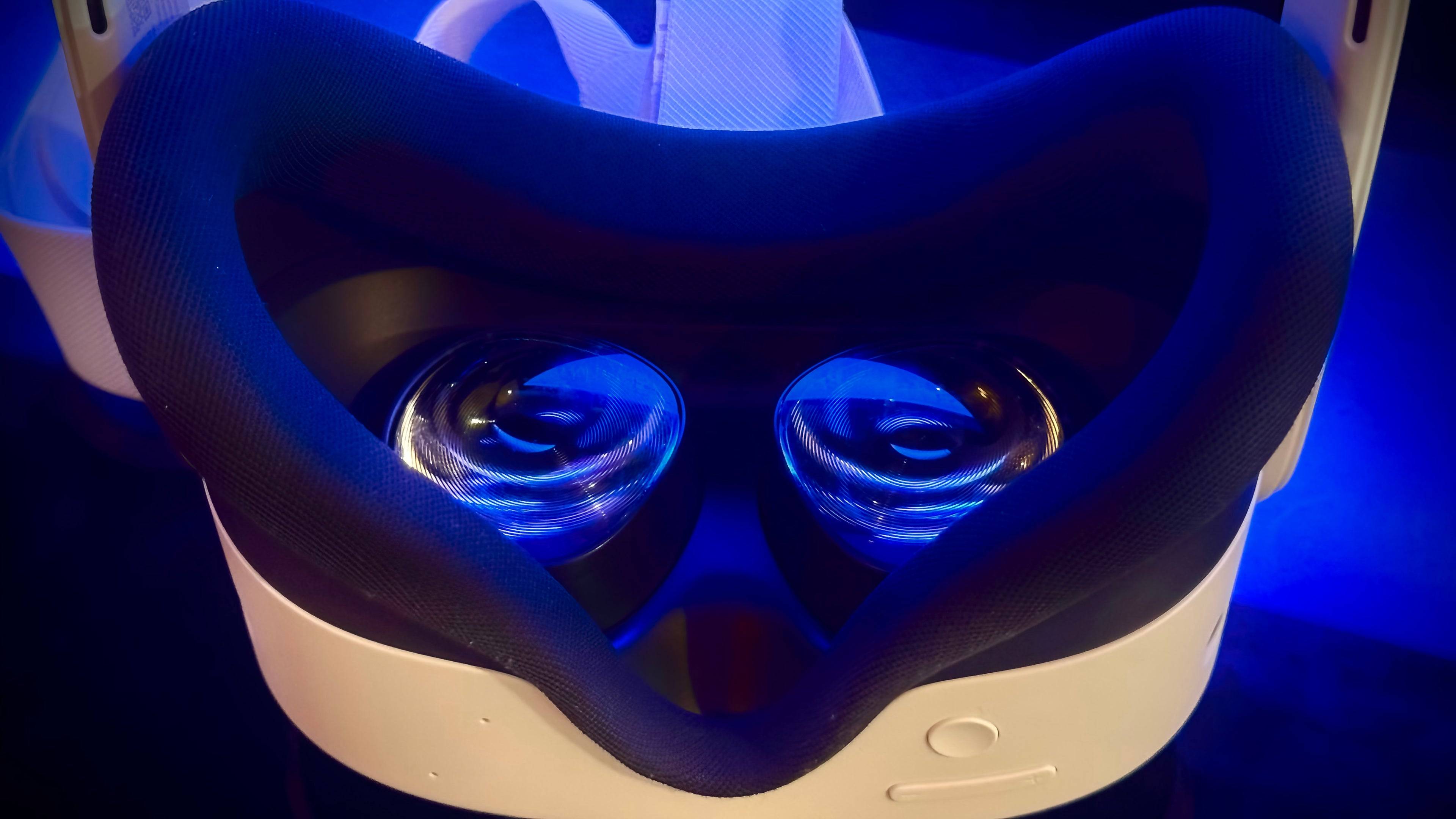
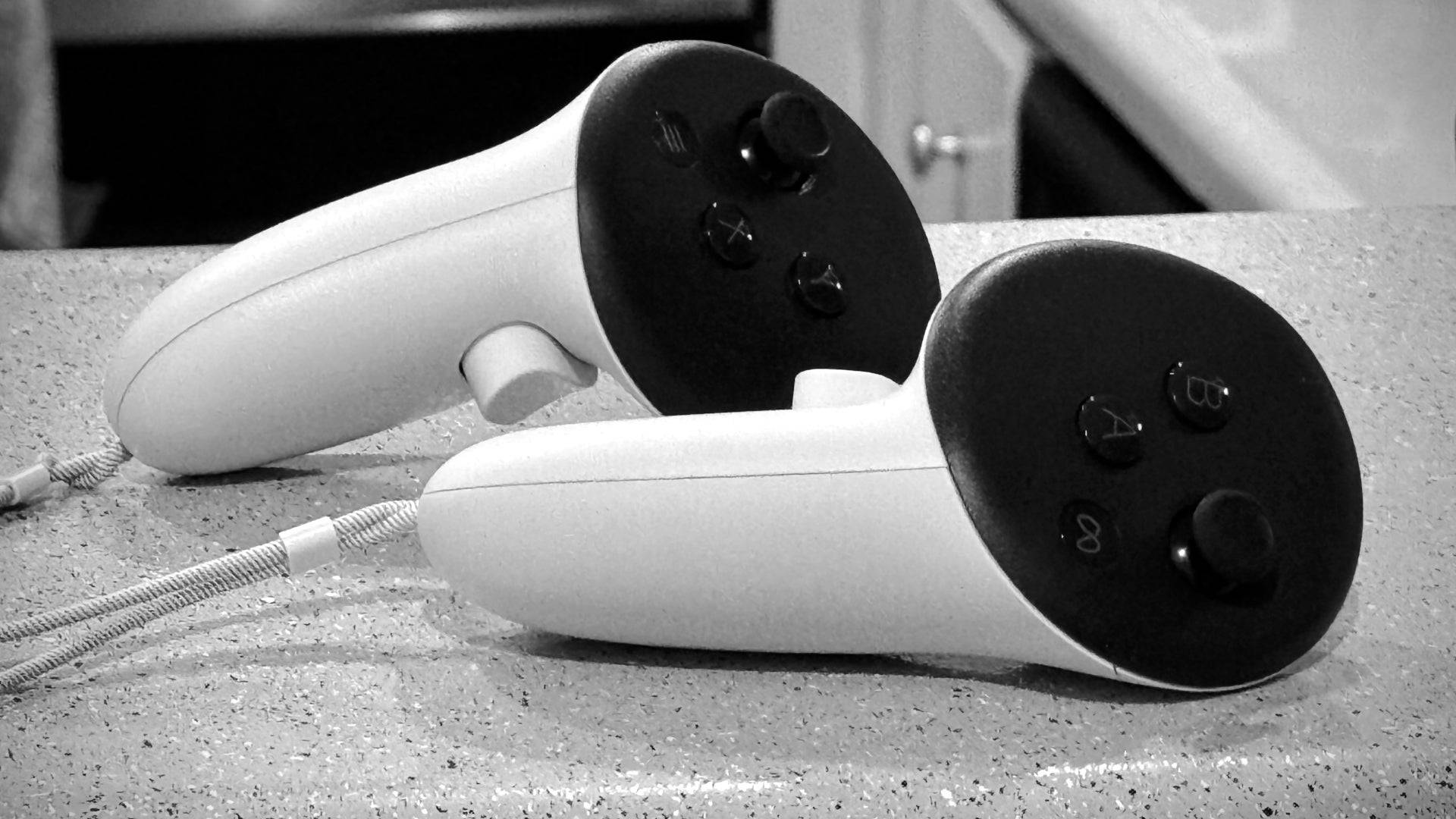 1. Meta Quest 3S
1. Meta Quest 3S
Best Budget VR Headset
 Our Top Pick### Meta Quest 3S
Our Top Pick### Meta Quest 3S
38This outstanding entry-level standalone/PC VR headset delivers impressive performance, full-color passthrough, and more, making it a top choice for VR enthusiasts on a budget. See it at AmazonSee it at Best BuyProduct SpecificationsPlatformStandalone, PCResolution (per-eye)1832x1920Refresh Rate90-120HzField of View90°Tracking6DoFWeight1.13 poundsPROSStandalone devicePerformance similar to the Meta Quest 3CONSFresnel lensesOur in-depth review of the Meta Quest 3 highlighted its exceptional standalone VR capabilities. However, the significant price increase from the Quest 2 was a downside. Fortunately, the Meta Quest 3S addresses this issue by merging the strengths of its predecessors into a more affordable yet powerful VR headset.
The Quest 3S boasts robust performance thanks to its CPU, GPU, and RAM, mirroring the Quest 3 and significantly surpassing the Quest 2. In our testing of the Meta Quest 3S, it effortlessly handled demanding games like Blade & Sorcery: Nomad and Supernatural. It even slightly outperformed the Quest 3, likely due to its lower-resolution lenses.
The Quest 3S opts for the Quest 2’s Fresnel lenses with a resolution of 1832x1920 pixels per eye and 20ppd, which means it may not match the clarity of the pricier model. However, it offers a 120Hz refresh rate and minimal screen door effect for a satisfying VR experience. The full-color passthrough mode enhances mixed-reality gaming, adding versatility.
The design of the Quest 3S closely resembles the Quest 3, featuring the same comfortable, lightweight controllers. Weighing in at 1.13lbs, the headset is well-balanced, and a cloth strap ensures a secure fit. Battery life is around 2 hours, but using a link cable allows you to connect it to a gaming PC for extended play.
PlayStation VR2 – Photos
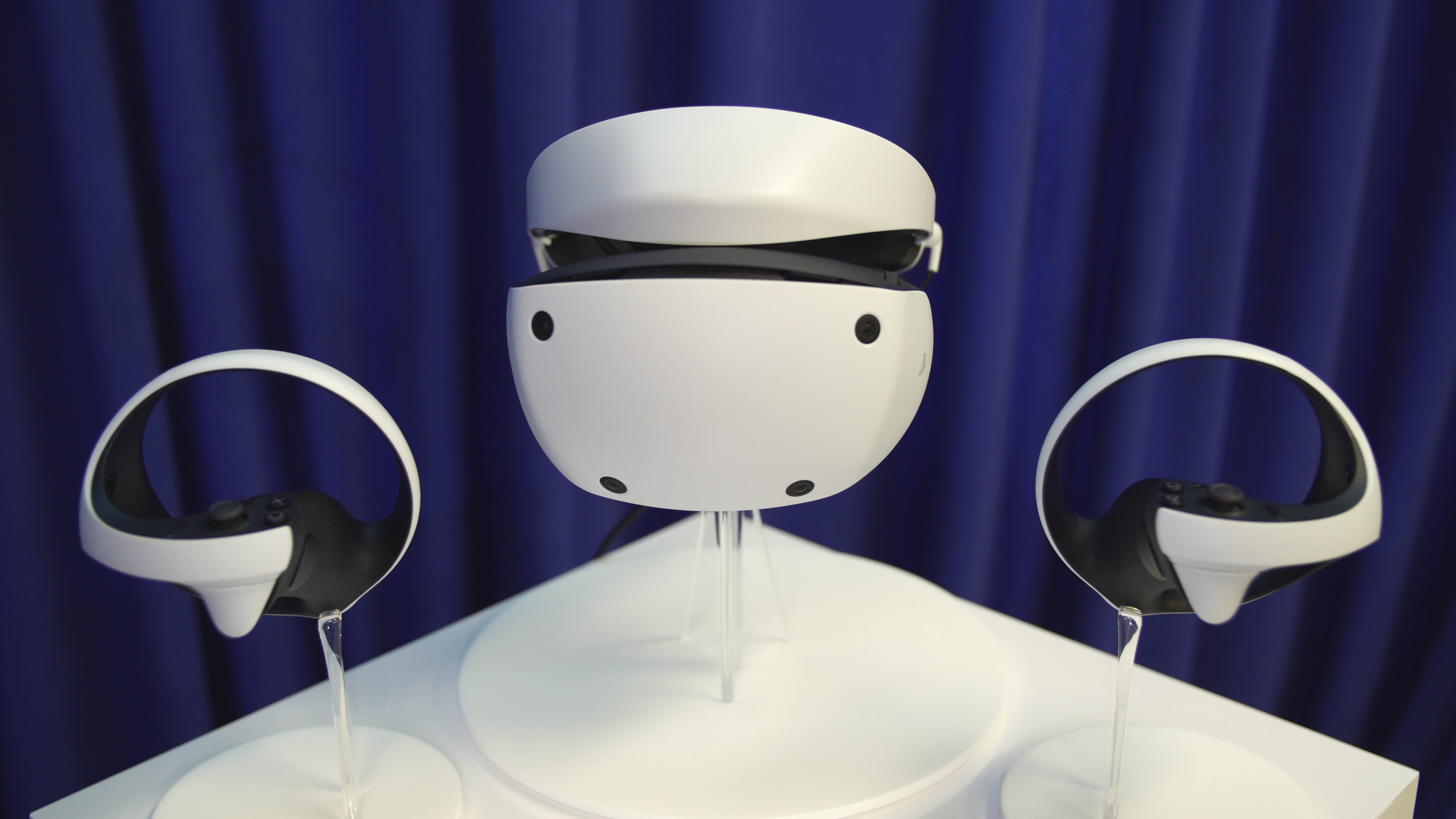
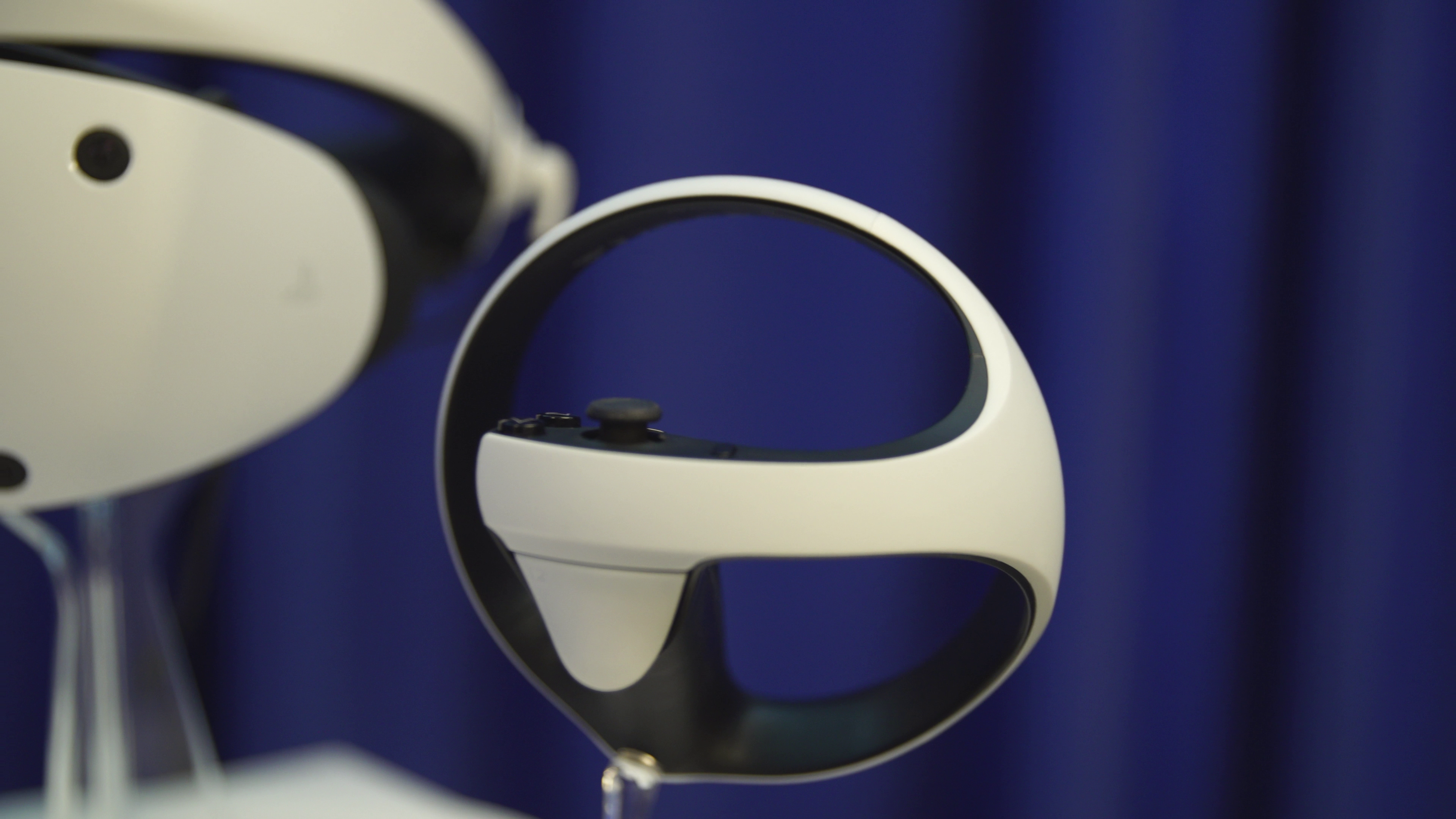 11 Images
11 Images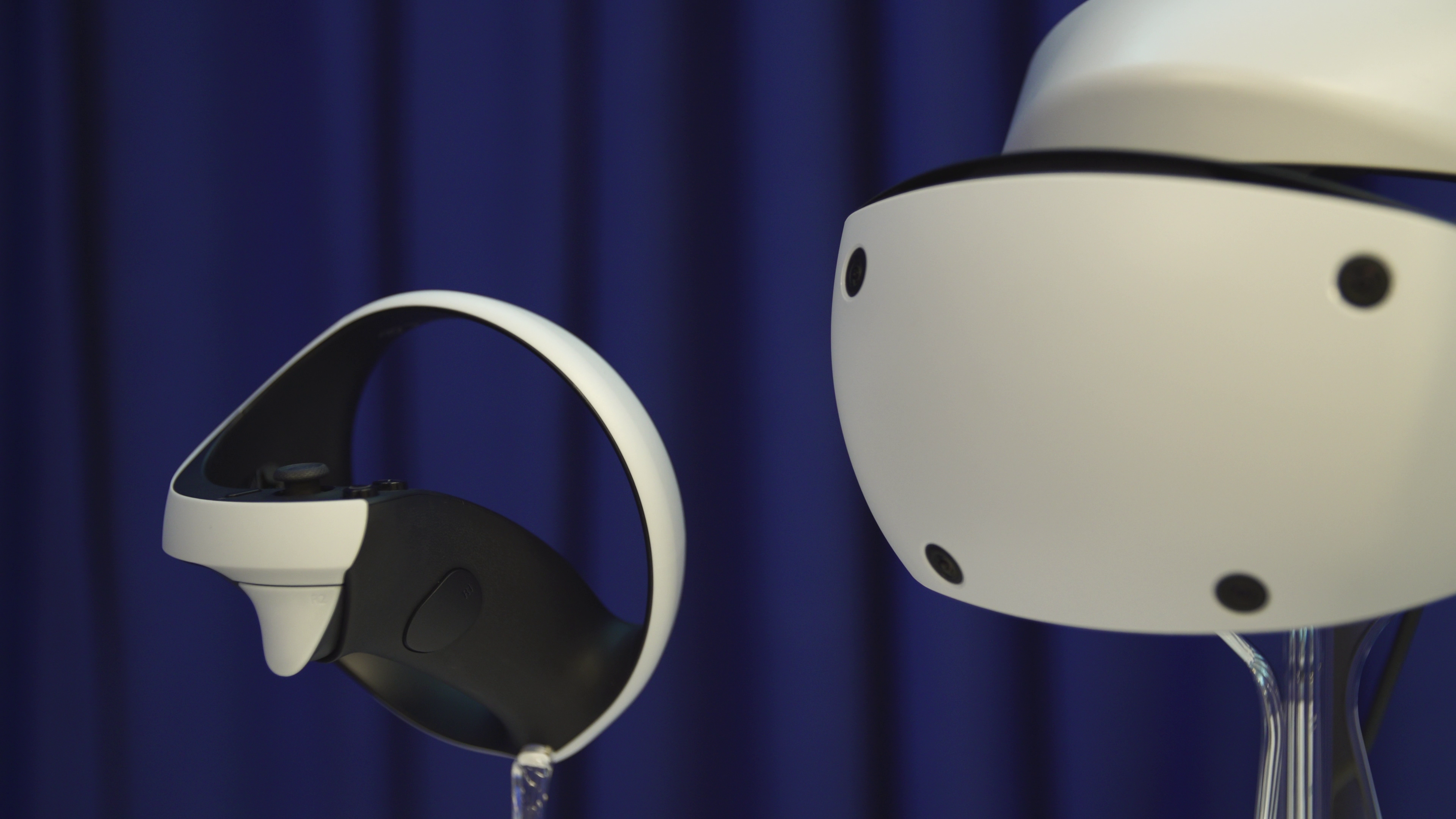
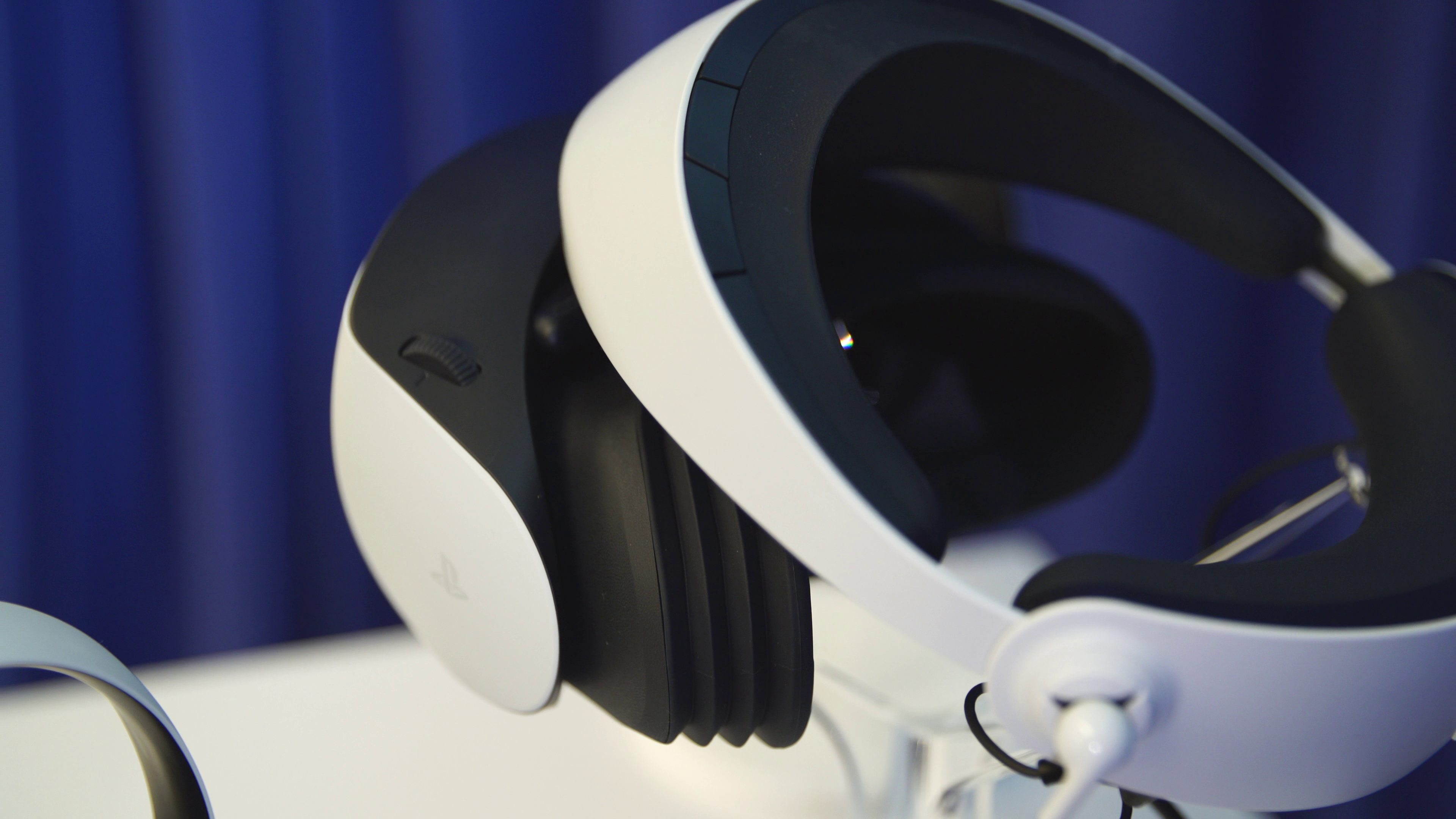
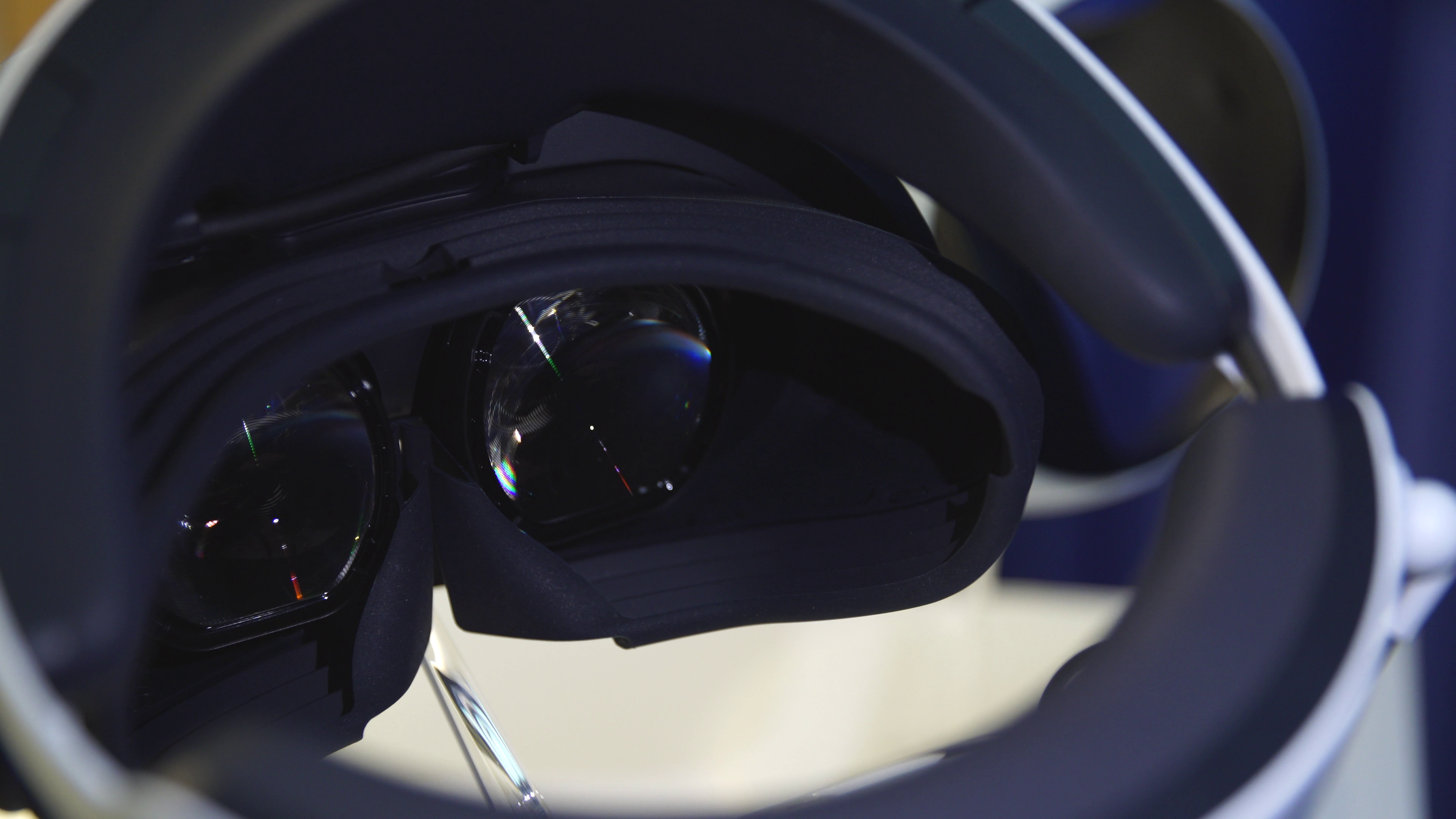
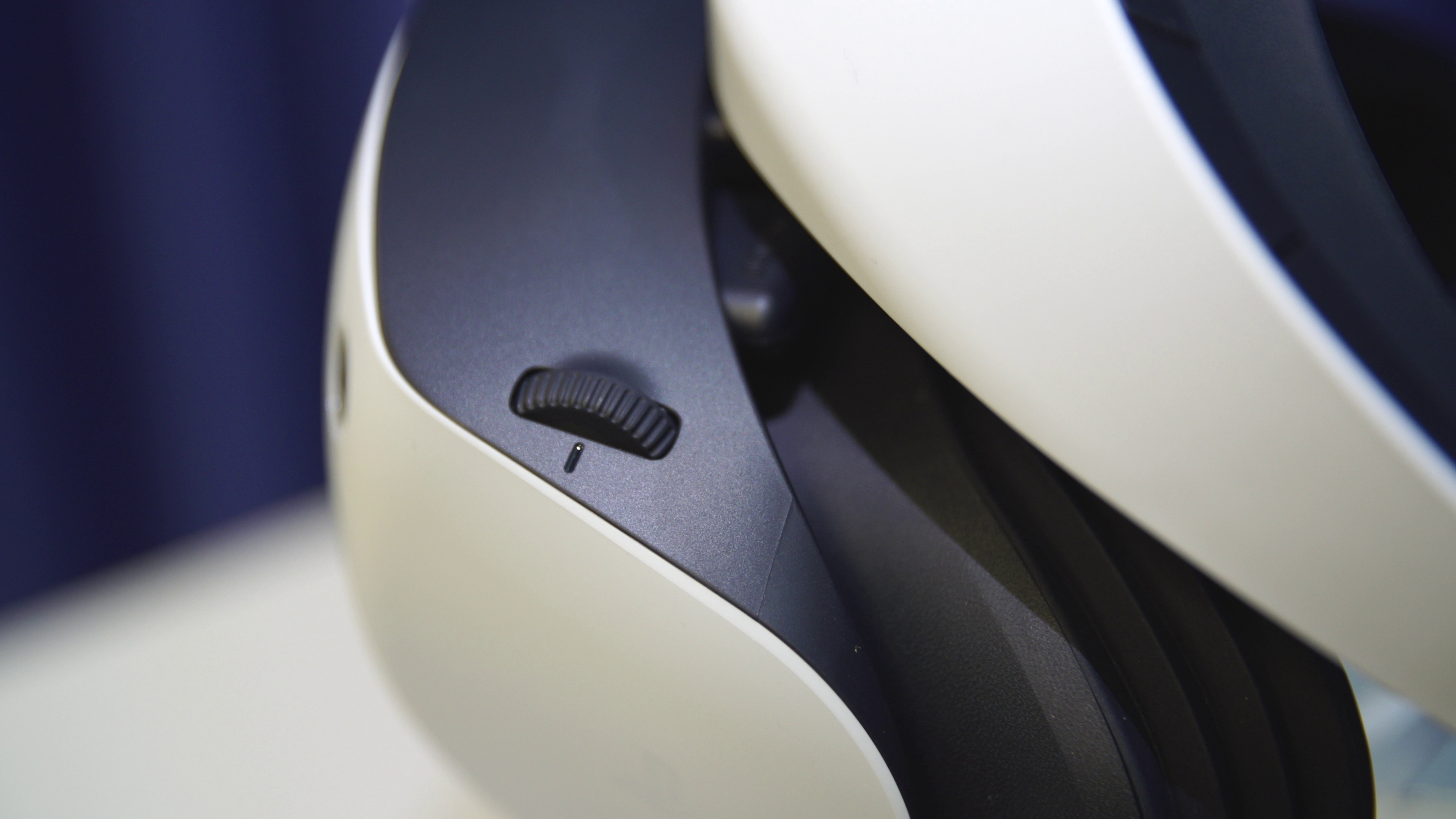 2. PlayStation VR2
2. PlayStation VR2
Best VR Headset Under $600
 ### PlayStation VR2
### PlayStation VR2
13This VR headset, designed for the PS5, includes built-in tracking cameras, eye tracking, 4K OLED panels, and two tactile Sense controllers with adaptive triggers and haptic feedback. See it at AmazonSee it at PlayStationSee it at TargetProduct SpecificationsPlatformPS5, PC (with adapter)Resolution (per-eye)2,000 x 2,040Refresh Rate90-120HzField of View110°Tracking6DoFWeight1.24 poundsPROS4K OLED displays with HDR and a 120Hz refresh rateTactile Sense controllersCONSCan’t play original PSVR gamesOur hands-on review of the PlayStation VR2 revealed it significantly outclasses the original headset in terms of capability. Priced starting at $550, it's less budget-friendly than some other options, but it packs in all the features you could want. These include built-in tracking cameras, eye tracking, and two tactile Sense controllers with adaptive triggers and haptic feedback. Setup is straightforward, though not entirely wireless, requiring a single USB-C connection and some calibration.
The visuals are stunning, thanks to the 4K OLED panels with HDR, a 120Hz refresh rate, and a 110-degree field of view. Its performance rivals that of many pricier PC VR headsets. However, it does not support original PSVR games. Thankfully, the PS VR2 offers PC compatibility via a $59.99 adapter. Our testing confirmed that while some features are lost on PC, the added functionality significantly enhances the device's value.
The Best Gaming PC Deals
Lenovo Legion Tower 5 AMD Ryzen 7 7700 RTX 4070 Ti Super Gaming PC with 32GB RAM, 1TB SSD (Use Code: EXTRAFIVE)- $1,527.49Acer Predator Orion RTX 4070 Ti SUPER Gaming Desktop- $1,749.99HP OMEN 35L RTX 4060 Ti Gaming Desktop- $1,219.99Dell XPS Intel Core i7-14700 RTX 4060 Ti Gaming PC- $1,349.99Dell XPS Intel Core i7-14700 RTX 4060 Gaming PC- $1,099.993. Nintendo Labo Toy-Con 04
Best VR Headset Under $100
 ### Nintendo Labo Toy-Con 04
### Nintendo Labo Toy-Con 04
8This unique VR headset, made from sturdy cardboard and featuring a pair of plastic lenses, uses the Nintendo Switch’s screen for a playful VR experience. However, it lacks a strap, which may lead to fatigue. See it at AmazonProduct SpecificationsPlatformNintendo SwitchResolution (per-eye)1,280 x 720Refresh Rate60HzField of ViewNot listedTracking 3DoFWeight3.14 poundsPROSPlayful headsets you constructBuilt of sturdy cardboardCONSNo strapThe Nintendo Labo Toy-Con 04 surprised many when it was released in 2019, despite long-standing rumors of a VR solution for the Nintendo Switch. This cardboard-crafted headset allows users to build various playful headsets, each tailored to a specific VR experience. From a blaster to an elephant that lets you use its trunk to interact with VR, it's sure to delight kids and adults alike. It's a fun Nintendo Switch accessory that won't break the bank, costing less than $100.
Given its construction from sturdy cardboard and reliance on the Switch's screen, the Nintendo Labo VR kit's performance is limited to the console's capabilities. The resolution and refresh rate are modest, making individual pixels visible and the action less smooth. The lack of a strap means you'll need to hold the headset in place, potentially causing fatigue during extended play.
Our initial review of the Nintendo Labo Variety Kit praised its ability to spark creativity, a core element of any Labo product from Nintendo.
Atlasonix VR Headset
Best VR Headset Under $50
 ### Atlasonix VR Headset
### Atlasonix VR Headset
13This VR headset accommodates smartphones up to 6.3 inches, offering comfort, an eye-protection system, and a Bluetooth remote for an enhanced VR experience. See it at AmazonProduct SpecificationsPlatformAndroid, iOSResolution (per-eye)Depends on deviceRefresh RateDepends on deviceField of View105°Tracking3DoF/6DoF (app-dependent)Weight0.5 poundsPROSEasy setupComfortable on headCONSLimited to your phone’s abilitiesThe Atlasonix VR Headset leverages the power of the best iPhones and Android phones to deliver a VR experience with superior clarity, comfort, and field of view. Unlike cardboard-based options, it features ample, breathable padding around the eyes and nose for comfort, and an adjustable strap helps distribute weight evenly. An eye protection system and adjustable focal and pupillary distance sliders enhance clarity and prevent strain.
Setting up the Atlasonix is straightforward, accommodating most phones up to 6.3 inches. Its durable plastic construction ensures longevity, and it comes with a Bluetooth controller for easy navigation and interaction within VR apps.
Google Cardboard POP!
Best VR Headset Under $20
 ### Google Cardboard POP!
### Google Cardboard POP!
6This ultra-affordable cardboard headset features a simple frame, lenses, and a button for limited interaction within VR. See it at AmazonProduct SpecificationsPlatformAndroid, iOSResolution (per-eye)Depends on deviceRefresh RateDepends on deviceField of View95°Tracking3DoF/6DoF (app-dependent)Weight0.31 poundsPROSExtremely inexpensiveEye cushioningCONSLimited interactions inside VRGoogle Cardboard options like the one from POP! are budget-friendly due to their simple cardboard construction, which holds your phone, lenses, and a button for basic VR interaction. You can download a Cardboard app and access a variety of VR content online. Google has made the headset's publicly available plans accessible, allowing other companies to produce versions or even enabling you to make your own.
The performance of Google Cardboard depends on your smartphone's capabilities. The POP! version includes a cutout for taking photos during play, along with eye cushioning, a velcro strap for easy phone access, and a band to secure it on your head. You can purchase this headset for under $20.
What to Look for in a Budget VR Headset
When choosing a budget VR headset, consider the type of VR experience you want. For immersive gaming, the Meta Quest 3S or PlayStation VR2 are top picks. If you're more interested in movies or static VR content, smartphone-based VR headsets are a cost-effective choice. We also suggest pairing these with a Bluetooth VR controller for enhanced control.
Platform: The VR ecosystem extends beyond the headset itself, encompassing the available apps and experiences. Most budget VR headsets operate with your smartphone, compatible with iOS and Android. The Meta Quest 3S is a standalone device with its own app store and PC connectivity for more extensive experiences. The PS VR2 requires a PS5 to maximize its potential, while the Nintendo Labo VR is exclusive to the Nintendo Switch. Choose a headset that aligns with the games and experiences you wish to explore.
Some platforms, like Google Cardboard, offer curated content ecosystems, providing immediate access to compatible apps.
Design and comfort: Comfort is crucial for prolonged VR use. Budget headsets may compromise on comfort to keep costs down, and very cheap options like Google Cardboard might not be comfortable for extended sessions.
For long-term use, opt for a headset with an adjustable strap and ample padding around the eyes. Shorter sessions can be managed by holding the headset, but interactive experiences benefit from hands-free use and a controller.
Consider how the headset handles your phone. The best models include padding to protect your device from scratches and vents to manage heat, preventing thermal throttling during VR app use.
With these considerations in mind, you don't need to spend a fortune to enjoy a great VR experience. While the most immersive games are on premium headsets, budget options still offer compelling experiences, especially with a capable smartphone. Use these tips to find the perfect budget VR headset and start exploring the virtual world.
Budget VR Gaming Headset FAQ
What's the difference between VR and AR?
Virtual reality (VR) and augmented reality (AR) are distinct technologies often mentioned in gaming. AR is more accessible, overlaying virtual elements onto the real world, as seen in Pokémon Go. Apple's Vision Pro also utilizes AR innovatively. VR, on the other hand, creates a fully immersive computer-generated environment, exemplified by games like Asgard's Wrath 2 on the Meta Quest or the PSVR 2 version of Gran Turismo 7.
What are some standalone VR headset options?
Most VR headsets require an additional device, such as a gaming PC, smartphone, or console. The Meta Quest series stands out as a top standalone option, with the Meta Quest 3S being the best budget choice. Other standalone options include the Pico 4, the HTC XR Elite, and the high-end Apple Vision Pro, which integrates seamlessly with Apple’s ecosystem and the best MacBooks for a versatile VR experience.
When is the best time to buy VR headsets on a budget?
While high-end VR headsets rarely see discounts, budget models often have price reductions during key sales events. Amazon Prime Day in July and Black Friday/Cyber Monday consistently offer the best deals, with a focus on Meta Quest headsets, though other models may also be discounted.
-
Is DRAGON QUEST I & II HD-2D Remake on Xbox Game Pass?The Dragon Quest 1 & 2 Remake is not currently available on Xbox Game Pass.Author : Alexander Dec 26,2025
-
Supermassive Games, the studio behind Until Dawn and the Dark Pictures Anthology horror series, has announced plans to cut up to 36 jobs in its latest restructuring effort.In a social media statement released today, the developer also confirmed shiftAuthor : Nora Dec 25,2025
-
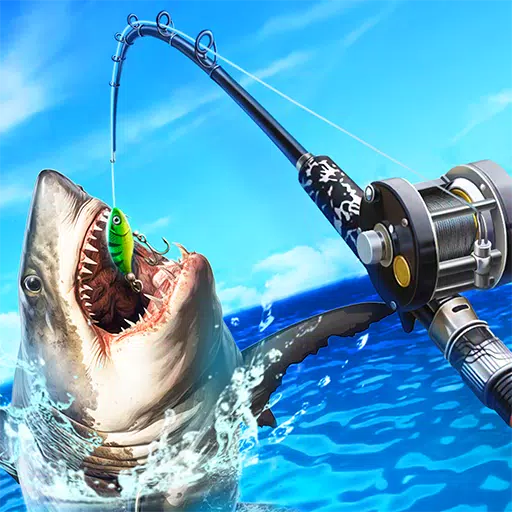 Ultimate Fishing! Fish GameDownload
Ultimate Fishing! Fish GameDownload -
 Live2D Don’t Tell Your SisterDownload
Live2D Don’t Tell Your SisterDownload -
 Word Scramble - Family TalesDownload
Word Scramble - Family TalesDownload -
 MagnoJuegos 5-EN-1Download
MagnoJuegos 5-EN-1Download -
 Selobus FantasyDownload
Selobus FantasyDownload -
 Braindom: Brain Games TestDownload
Braindom: Brain Games TestDownload -
 Idle World - Build The PlanetDownload
Idle World - Build The PlanetDownload -
 Claras Love HotelDownload
Claras Love HotelDownload -
 Neon SplashDownload
Neon SplashDownload -
 Guess the Word. Word GamesDownload
Guess the Word. Word GamesDownload
- Black Ops 6 Zombies: How To Configure The Summoning Circle Rings on Citadelle Des Morts
- Harvest Moon: Lost Valley DLC and Preorder Details Revealed
- Roblox: Latest DOORS Codes Released!
- Silent Hill 2 Remake Coming to Xbox and Switch in 2025
- Roblox: Blox Fruits Codes (January 2025)
- Roblox: Freeze for UGC Codes (January 2025)







![Taffy Tales [v1.07.3a]](https://imgs.ehr99.com/uploads/32/1719554710667e529623764.jpg)



